June 3, 2021

Scientific Aging: The Genetic Basis for Longer, Healthier Lifespans
In his recently published book, Extra Life: A Short History of Living Longer, economist Steven Johnson chronicles the remarkable doubling of the human life span in the U.S. since 1880. The improvement from 40 to 80 years has essentially created an “extra life” (on average) for all Americans.
This dramatic extension of lifespan is among the most under appreciated achievements in human history. Advances in medicine, science, public health and safety have combined to make it possible. Consequently, the concept that lifespans can increase significantly is neither new nor unproven.
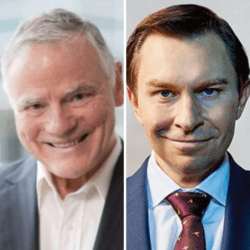
Watch the video of Lee Hood interviewing David Sinclair here.
Indeed, humanity now is on the cusp of another dramatic expansion in human longevity. The application of genetic and epigenetic data to promote individual well-being is fueling this latest spike upward. Longer lifespans will manifest through precision medical interventions (think CRISPR and messengerRNA derived therapies) and through precision lifestyle management (think personalized nutrition, exercise, sleep, meditation and supplement regimens).
It is against this backdrop that Lee Hood and David Sinclair, pioneers in healthy aging and longevity research, came together for a conversation on Sinclair’s 2019 book, Longevity: Why We Age — And Why We Don’t Have To. The Institute of Systems Biology and Town Hall Seattle sponsored this virtual event. Readers can livestream this can’t-miss discussion here and download a transcript of their conversation here.
Australian-born Sinclair is a tenured genetics professor at Harvard Medical School, codirector of Harvard’s Center for the Biology of Aging Research, and a best-selling author. His pathbreaking aging research has gained him international fame. His awards include the Australian Medical Research Medal, the NIH Director’s Pioneer Award, Time magazine’s list of the “100 Most Influential People in the World” (2014) and the “Top 50 People in Healthcare” (2018).
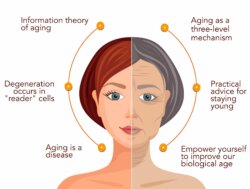
Highlights of Hood and Sinclair’s wide-ranging conversation include the following topics:
- Sinclair’s “information theory of aging:” Built on mathematician Claude Shannon’s work on information heory, Sinclair asserts that the replicating efficiency of DNA codes degenerates over time as “noise” enters the system. This noise leads to “breaks” in DNA sequences. It is these breaks in DNA sequences, not the DNA itself, that cause aging.
- Degeneration occurs in “reader” cells: Genes and their epigenetic expression propel cell development and differentiation. The body contains two basic types of cells. The first type contains each individual’s genetic data or DNA. The second type reads and directs DNA application. Throughout the translation process, the archival DNA copies remain pristine, but the “reader” cells degrade over time from the signaling noise described above. Sinclair equates these degenerating DNA “reader” cells to “scratched CDs” that don’t play music as well as they once did. Fix the “scratches” and aging slows.
- Aging is a disease: Sinclair’s research suggests that these “scratched” reader cells are treatable. From a medical perspective, he believes it is easier to slow or even reverse cell degeneration (i.e., aging) than to treat many forms of cancer. If true, this represents a monumental shift in medical reasoning. Aging causes 85% of all human suffering, including most major diseases. The ability to treat aging as a disease and slow its detrimental impacts has the potential to extend healthy human life well into the 100s.
- Aging is a simple three-level mechanism: The first level encompasses environmental inputs, including eating and exercise, that influence the aging process. Adaptive behaviors, stress to the immune system, such as intermittent fasting and experiencing cold, can extend an individual’s lifespan. The second level consists of specific longevity genes, such as sirtuin proteins, that repair cells under stress. These repairs modulate the pace and extent of the aging process. The third level is the fundamental relationship between DNA and its application, captured by Sinclair’s information theory of aging. In Sinclair’s opinion, it is now possible to proactively influence this relatively simple structure.
- Practical advice: Throughout the discussion, and especially during the audience Q&A segment, Sinclair discussed his own strategies for managing his immune system and extending his lifespan. They include eating one meal a day, exercising big muscle groups and taking supplements to enhance his longevity genes. These supplements include metformin, rapamycin and resveratrol. It’s never too late to start combatting aging. Upon retirement, Sinclair’s 81-year-old father changed lifestyle behaviors and now is in better shape than Sinclair himself.
Among the ironies of modern life is that the U.S. is experiencing declining life expectancy at the very moment science is gaining the knowledge and tools necessary to extend healthy lifespans. Education and making it easier for regular Americans to develop healthier lifestyle habits are essential to reversing current trends and realizing the potential of healthy aging.
Sinclair’s essential message is that we all have it within our power to improve our biological age. Happily, there are concrete strategies for feeling faster, stronger and younger. Better individual and community health is possible, but not preordained. In the final analysis, as former Cleveland Clinic CEO Toby Cosgrove observed, “the state of our nation depends on the state of our health.”
More Interviews with Leroy Hood M.D., Ph.D.
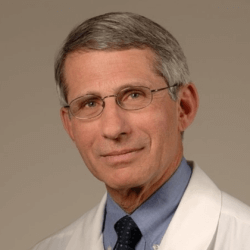
Leroy Hood M.D., Ph.D., interviews Anthony S. Fauci, M.D., Director of the U.S. National Institute of Allergy and Infectious Disease, NIH. (winter 2021). Watch here.
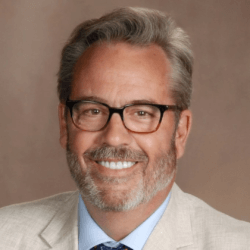
Robert Lee Kilpatrick, Ph.D, Commonwealth Club of California, interviews Leroy Hood, M.D., Ph.D. Listen to the discussion here.
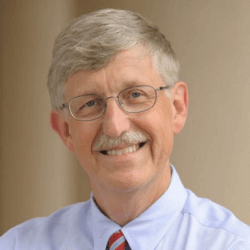
Leroy Hood M.D., Ph.D, interviews Francis S. Collins, M.D., Ph.D., Director of the National Institutes of Health (NIH) (summer 2021).
About Leroy Hood M.D., Ph.D.
 Leroy Hood, MD, PhD, is a 4sight Health contributor, a member of the National Academies of Sciences, Engineering and Medicine, a professor and co-founder of the Institute for Systems Biology and senior vice president and chief science officer of the Providence St. Joseph Health system. Here are two of his recent articles that first published in the LA Times Second Opinion column and on the 4sight Health platform.
Leroy Hood, MD, PhD, is a 4sight Health contributor, a member of the National Academies of Sciences, Engineering and Medicine, a professor and co-founder of the Institute for Systems Biology and senior vice president and chief science officer of the Providence St. Joseph Health system. Here are two of his recent articles that first published in the LA Times Second Opinion column and on the 4sight Health platform.
- Second Opinion: Getting past disease to the science of wellness. The field of scientific wellness aims to treat patients by using data based on their individual health, before disease emerges.
- Second Opinion: How long haul COVID could offer clues for treating other puzzling chronic illnesses. New ways to monitor the immune systems of COVID-19 patients could be useful in understanding the long-term symptoms of Lyme disease, among other conditions.





